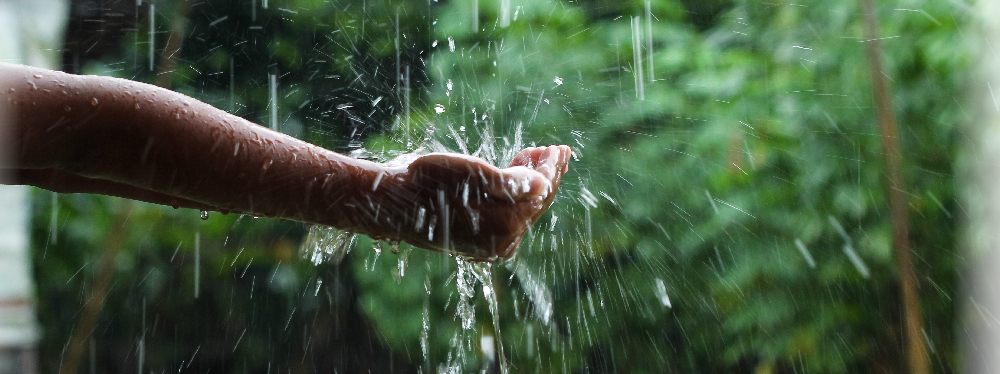A very important consideration during the monsoon season is how to prevent rainwater from entering your house. Making sure that your home is well protected from rainwater can save you a lot of money and many other things. This guide covers the importance of rainproofing your home, common problem areas to look into, and solutions on how to make your house dry and safe.
Overview of the Importance of Rainproofing Homes
Maintenance of the structural integrity of buildings and protection of people’s lives and health while inside them are two key roles for which Rainproofing homes becomes vital. These include water damage, mildew infections, and foundation defects caused by monsoon rains, among others. By acting proactively, you can prevent these issues by reading this comprehensive guide on how to prevent rainwater from entering your house.

Common Problems Caused by Rainwater Entering Homes
Rainwater can cause several problems, such as:
- Damage to walls and ceilings
- Development of mould and mildew
- Decay of wooden structures
- Destruction of Electrical systems
- Foundation erosion, basement flooding
Preventing Rainwater Entry Through Windows
To prevent rainwater from entering through windows, consider the following tips:
- Installing Weatherstripping: By keeping water away from seeping in, weatherstripping creates a tight seal around your windows.
- Caulking Around Window Frames: Caulking gaps and joints around window frames help to keep water out.
- Using Rain Guards and Deflectors: To redirect water away from windows, you can install rain guards or deflectors over them.
- Regular Window Maintenance: Check regularly that weather-stripping remains efficient; also, clean some of the parts, then caulk it again if necessary.
Preventing Rainwater Entry Through Doors
Doors are another critical area to secure against rainwater entry. To prevent rain from entering the door, follow these tips:
- Using Door Sweeps and Draft Stoppers: Door sweeps and draft stoppers may be used to seal gaps at the bottom of doors.
- Sealing Gaps with Weatherstripping: Weather stripping ensures a tight seal for the door frames, preventing water entry.
- Putting Up Awnings or Canopies Above Doors: It will help divert rain so that they do not fall on doors.
- Routine Checks and Maintenance for Door Seals: Regularly check door seals for wear and tear and replace them as necessary to maintain a watertight seal.
Waterproofing Your Roof and Ceiling
A well-maintained roof is your first line of defence against rainwater.
- Regular Roof Inspection: Regular roof inspections can help identify potential problems ahead of critical concerns.
- Applying Waterproof Coatings and Membranes: The roofing system gains extra protection by having waterproof coatings and membranes.
- Repairing Cracks and Damaged Shingles: Repair all damages on your ceiling so that water does not pass through it to the home interior.
- Cleaning and Maintaining Gutters and Downspouts: Cleanliness is essential for gutters and downspouts because this keeps water flow normal while avoiding spillage.
Protecting Walls from Rainwater
Follow these tips to protect walls from rainwater:
- Using High-Quality Exterior Paints: High-quality external paints have greater resistance to moisture.
- Applying Waterproof Coatings and Sealants: This adds another layer of protection from water infiltration of rooftops, in addition to applying waterproof sealants and coverings.
- Repairing Cracks and Gaps Promptly: A speedy reaction to wall cracks or gaps is vital since they can prevent water seepage at an early stage.
- Installing Drainage Systems to Redirect Water: Their function is to take rainwater away from house walls.
Managing Water Around Foundations and Basements
Proper management of water around your foundation and basement is crucial for preventing flooding and structural damage:
- Installing French Drains and Sump Pumps: French drains manage ground/ surface water while sump pumps are used in managing the same plus groundwater within basements
- Ensuring Proper Grading Around the Home: Proper grading ensures that water flows away from your foundation.
- Regular Inspections: Regularly inspect your basement and foundation for signs of water intrusion and address any issues promptly.
Balcony and Terrace Protection
Balconies and terraces need special attention to prevent water accumulation and leakage.
- Effective Drainage Systems: This ensures that water does not stay on balconies and terraces.
- Sealing Cracks and Leaks in Balcony Floors: It is important to regularly inspect and seal any cracks or leaks in balcony floors to prevent water from leaking through them.
Additional Tips and Tricks
Here are some additional tips and tricks on how to prevent rainwater from entering your house:
- Keeping the balconies and terraces clean will ensure proper water drainage.
- Create a regular inspection/maintenance schedule to keep your home safe from rainwater.
- Use the best materials possible for all repairs and installations to ensure long-lasting protection.
- Call upon experts for large-scale waterproofing jobs just to make sure they do the work properly.
- Fix any problem that arises promptly. Otherwise, it may result in massive destruction, which would require enormous cost implications for repair.
Takeaway
To sum up, it is essential to know how to prevent rainwater from entering your house. By taking precautions such as regularly maintaining your home, you can prevent rainwater from causing extensive damage. Also, quality materials used while constructing a house can be beneficial in the long run.
Contact Rustomjee today if you are looking for the best residential property that will provide you with a safe place to live without any worries. The quality of materials by Rustomjee while constructing properties, guarantees safety and happiness.
FAQs
- How to prevent rain from entering the door?
Install door sweeps and draft stoppers, seal gaps with weatherstripping, and add an awning or canopy.
- What are the best waterproofing methods for windows?
Installing weatherstripping, applying caulk, using rain guards, and conducting regular maintenance are effective waterproofing methods for windows.
- How can I fix a leaking roof during rain?
Apply a temporary roof patch or tarp to the affected area until a permanent repair can be made.
- What materials are best for exterior wall waterproofing?
High-quality exterior paints, waterproof coatings, and sealants are ideal for waterproofing exterior walls.
- What are effective solutions for balcony rain protection?
Install roof covers and retractable awnings, and ensure proper drainage systems are in place.
- How often should I inspect my home for rainwater leaks?
Conduct inspections at least twice a year and after any major storm or heavy rains.
- What are the signs of potential rainwater seepage in a home?
Look for water stains, mould growth, dampness, and peeling paint as indicators of rainwater seepage.








